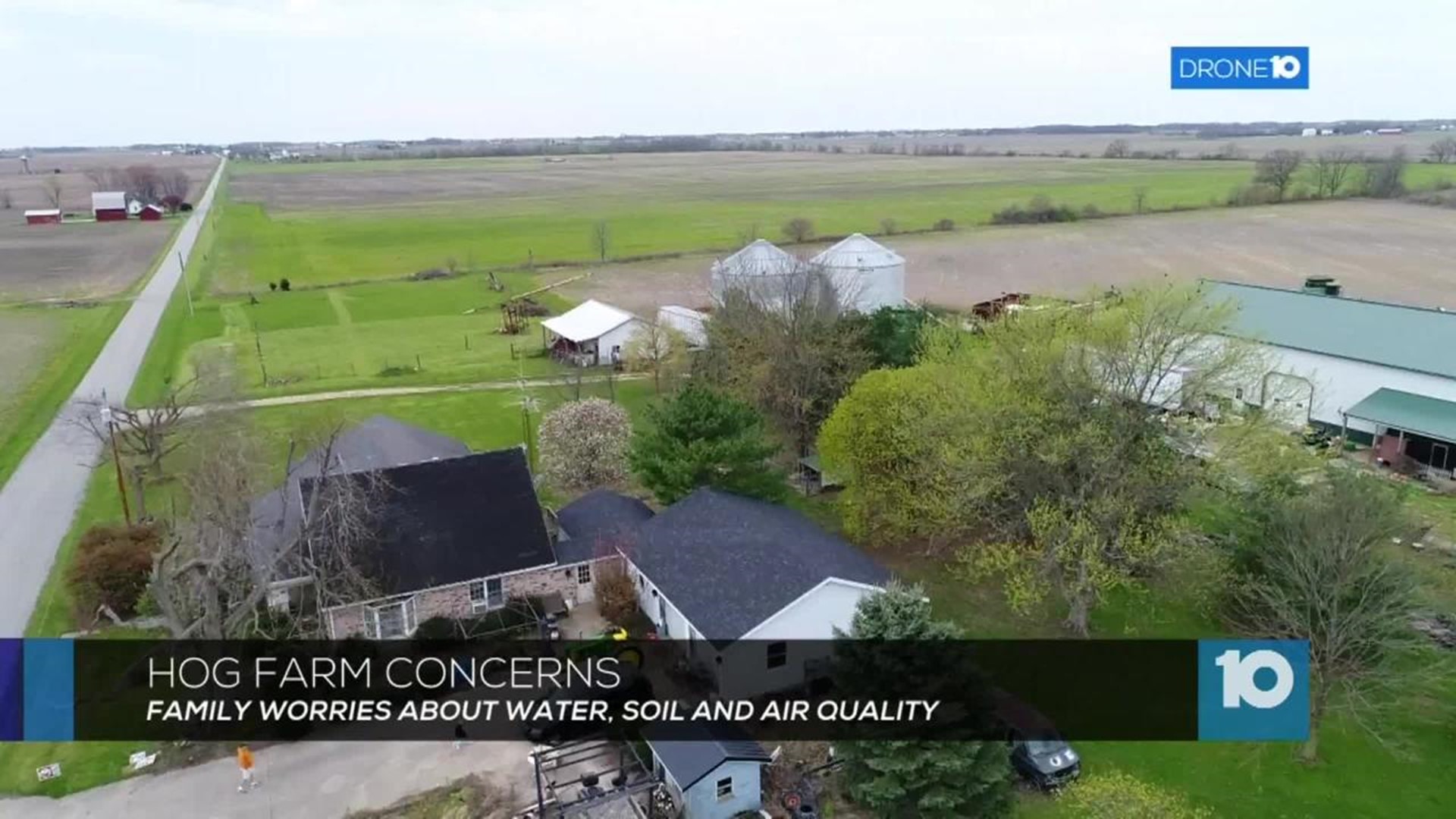Residents of Ohio farming communities are concerned about hog farms moving into their area. The farms do not require permits because they fall under the 2,500 head requirement from the Ohio Department of Agriculture. Residents said they are concerned the farms may pollute the air, water and soil.
For the LeBeau family of Bloomingburg, the hog farm going in near their home could mean their daughter Amy can no longer go outside. She has muscular dystrophy and is confined to a wheelchair. On sunny summer days sometimes her only time outside is when her father pushes her down the road in front of their home.
"I have a daughter with muscular dystrophy we know for a fact she has respiratory ailments that even being around the massive amount of particulates from the hog manure is a bad thing," says her father.
In Ohio, hog farmers who raise 2,400 head of hog are fewer do not require permits from the Ohio Department of Agriculture. Because of that, the state says it has no idea how many of these barns are operating in the state.
The owner of the hog barn near the LeBeau home, John Surber, disputes claims the pig farms are a problem saying, "Barns aren't permitted because there isn't a problem. We apply less manure than most. We notify neighbors when we apply our manure, and if they ask us not to spread on a certain day we comply," he said.
Since these hog barns can operate without permits or state regulations on air quality, homeowners are skeptical about whose watching the hog farmer.
Brad Hiemer operates 80 pig barns in Lancaster about an hours drive from Bloomingburg. He said his barns are often built away from homes or water wells and streams. One hog barn will produce 600-thousand gallons of manure a year. He said despite what the public thinks, hog farmers only spread manure twice in the spring and twice in the fall.
The Ohio Environmental Council is urging lawmakers to pass a bill that would require unregulated hog farms to provide reports on manure spreading and pollution prevention among other things.
The Ohio Department of Agriculture issued this statement to 10TV:
"At the Ohio Department of Agriculture we encourage farmers to engage in a dialogue with their neighbors so all can reach a level of understanding as to what goes into an agricultural operation. Our various divisions work with both farmers and citizens to ensure operations are following best management practices that protect the environment and ensure humane animal care while allowing the facility to be productive. Larger permitted facilities are regularly inspected at least twice a year and all farms can be inspected by local Soil and Water Conservation Districts, ODA and Ohio EPA, in the unlikely event an issue arises or is suspected. These inspections can be unannounced, but for bio-security purposes generally aren’t. State law allows production of meat, milk, food and fiber in agricultural areas. In the event a bad actor is suspected, the department will not hesitate to work with collaborative agencies to ensure that the producer comes into compliance with the law, and/or carry out penalties if necessary."

